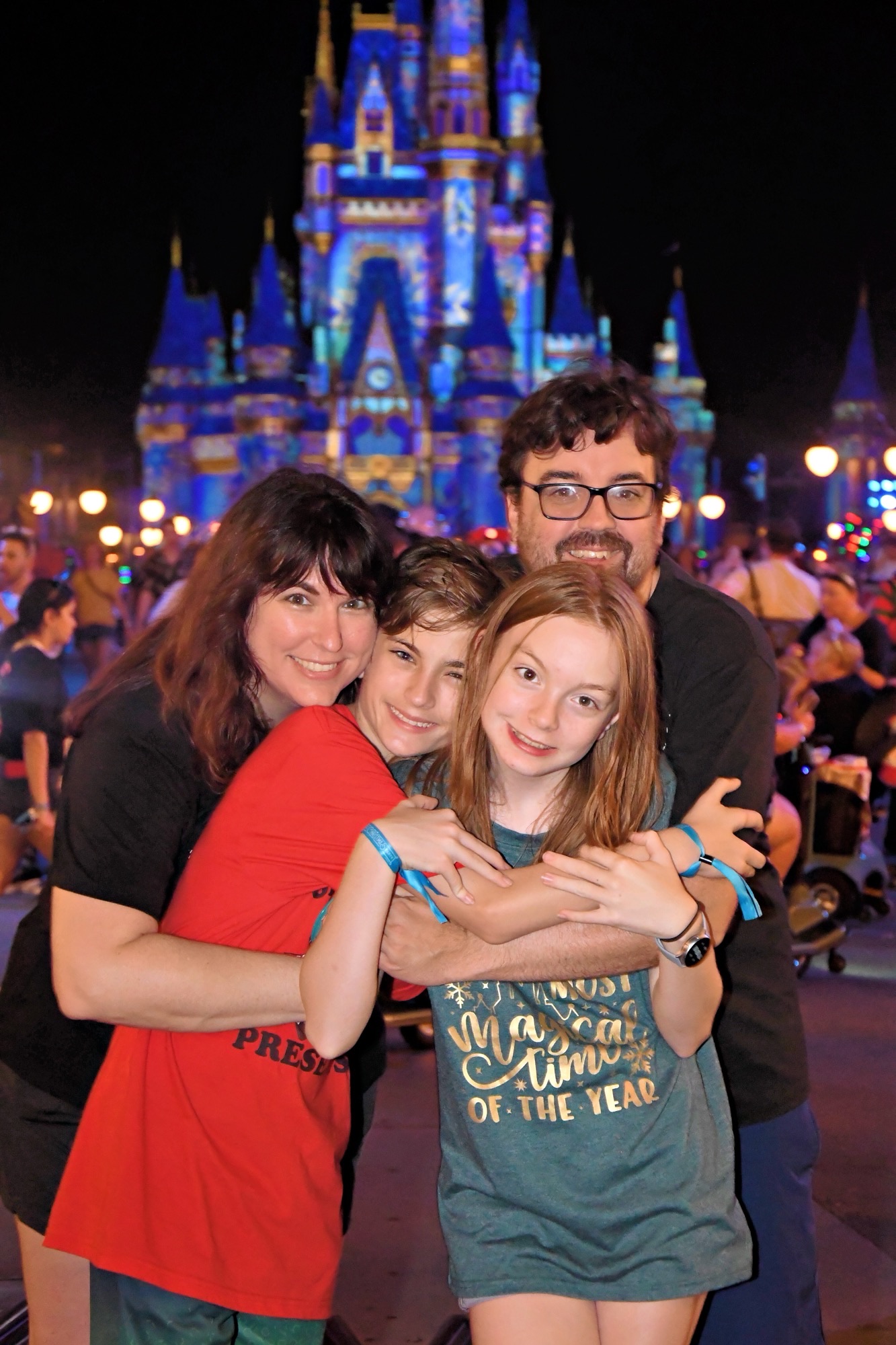Amanda Mordavsky Caleb: Championing Medical Humanities for Health Equity
“The humanities should constitute the core of any university worth the name.” – Terry Eagleton
 Before joining Geisinger Commonwealth School of Medicine to direct the medical humanities programs, Amanda Mordavsky Caleb spent much of her childhood learning about and understanding new cultures and languages.
Before joining Geisinger Commonwealth School of Medicine to direct the medical humanities programs, Amanda Mordavsky Caleb spent much of her childhood learning about and understanding new cultures and languages.
“I was that kid who was a lover of reading and had a flashlight under my blanket and by five, was writing one-page stories,” says Amanda. “My grandparents were great storytellers. One of my grandfathers served in the military, my grandparents had an arranged marriage, the whole mail-order bride from Poland story. I was fascinated by their immigration stories, the resilience, the challenges they faced.”
These stories lit her passion for advocacy and deepening her understanding of cultural identities. “I had big dreams,” she says. “I wanted to become the Chief Justice of the Supreme Court. When Sandra J. O’Connor was on the high court in the 1980’s she inspired me that women can make an impact in places traditionally occupied by men.”
A Scholar’s Path: Education and Early Influences
With her sights set on law school, Amanda earned a BA in English from Davidson College, an MA in Nineteenth-Century Studies, and a PhD in English from the University of Sheffield, focusing on medicine, science, and literature, along with a graduate certificate in global health from University of Alabama at Birmingham.
Her studies drove Amanda’s determination to use her knowledge to integrate systems, society, and humanism in medicine. After serving as a Professor of English and Medical Health Humanities at Misericordia University in Dallas, PA, she now leads as the Director of Systems, Society and Humanism in Medicine at Geisinger Commonwealth School of Medicine in Scranton, PA.
Recently, Geisinger launched The Center for Medical Humanities—a milestone achievement spearheaded by Amanda, considering there was no humanities program when she joined the institution almost four years ago.
She’s also the Membership Chair for the Health Humanities Consortium and serves as Editor-in-Chief of Black Diamonds, GCM’s arts and literary magazine featuring creative work from students, faculty, alumni, and more.
— Amanda Mordavsky Caleb
“Black Diamonds is a reminder that medicine is more than science,” says Amanda, “that stories are as important as lab results, and that observation requires moving outside our preconceived notions and expectations.”
She believes that poems, stories, and photographs train us to be better observers—to “challenge our assumptions of what is and what should be.”
With expertise spanning health communication, bioethics, and Holocaust studies, Amanda has also led research on the medicalization of social policies and ethical implications of healthcare decisions.
Bearing Witness to the Suffering of Others
Amanda’s work in Holocaust studies has been especially influential. She was instrumental in bringing the Deadly Medicine exhibit from the U.S. Holocaust Memorial Museum to Misericordia University and has curated speaker series exploring the intersections of medicine and human rights.
Her lecture, “Eighty Years since Auschwitz: Confronting Medicine’s Role in the Holocaust and Protecting Human Dignity”, delivered at Geisinger in January, examined how medical professionals were complicit in Nazi dehumanization. The event underscored her commitment to ensuring history’s darkest lessons are never forgotten.
Personal Life and Advocacy
 Amanda is a proud mom of twin 13-year-olds—Gabe, who’s interested in epidemiology, and Ella, a natural comedian and writer.
Amanda is a proud mom of twin 13-year-olds—Gabe, who’s interested in epidemiology, and Ella, a natural comedian and writer.
Her personal journey has deepened her advocacy for patient-centered care. Her father’s dementia and her son’s diagnosis with VACTERL association taught her that medicine must honor language and story.
She recalls reading Keats’ “When I Have Fears That I May Cease to Be” with her father: “We found a safe space for him to express his fears and why he didn’t want to live elsewhere. When he could share his story, we could care better.”
She also remembers a painful exchange after her son’s procedure when a physician said, “If you had kept him in longer, this wouldn’t have happened.” “That moment taught me why medical students need to study the humanities,” Amanda says. “Medical professionals need to know: your words matter.”
Contributions to Literature and Public Engagement
Amanda has edited and contributed to works like Teleny; Or, the Reverse of the Medal by Oscar Wilde and scholarly collections like Covid Communication: Exploring Pandemic Discourse and Re(Creating Science in Nineteenth-Century Britain.
She’s served as an educational consultant for the Benjamin Ferencz Institute for Ethics, Human Rights, and the Holocaust and in 2020 launched The Health Humanist Podcast with support from NED CARES.
Her journey—from an aspiring Chief Justice to a thought leader in narrative medicine—reveals a deep dedication to storytelling, ethics, and equity in healthcare.
She describes herself in five words: Passionate. Determined. Ambitious. Energetic. Plucky.
“My family would describe me as plucky,” she laughs, “and when I think about it—plucky is how I’ve had to be to create spaces and practices that weren’t here before.”
Join Narrative Mindworks
Be part of a global community advancing the power of storytelling in healthcare, education, business, and the arts.
Whether you're a healthcare professional, educator, writer, or business leader, narrative practices shape the way we connect, heal, and inspire change. At Narrative Mindworks, we bring together professionals who use storytelling to transform lives, strengthen communities, and create meaningful impact.
Join a network of thought leaders, gain access to exclusive resources, and grow your influence in the evolving field of narrative practice.
Your Story Matters – Join Now
